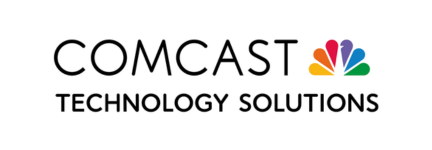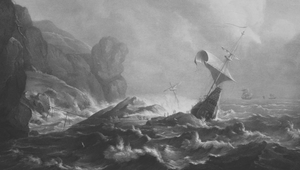
Making Communication a 2 Way Street with Kristin Dober

For over 15 years, Kristin Dober has successfully produced all types and sizes of productions, including national broadcast commercials, documentaries, photography, digital and social video content, music videos, narrative short films, unscripted television, 2D and 3D animation, motion graphics, and experiential installations.
Through managing budgets, timelines, and collaborating with trusted partners, she consistently creates award-winning work for clients across a variety of industry verticals. Her work has been published in Communication Arts and Flash Fiction Magazine, and she has been recognised by the American Advertising Awards at the local and national level for creative excellence in production.
LBB> What advice would you give to any aspiring producers or content creators hoping to make the jump into production?
Kristin> Learn about every phase of the production process and the role of every person involved so you can better understand their job and therefore anticipate their needs. Don’t be afraid to have honest conversations and ask questions if you don’t understand something. Approach every conversation with empathy and enthusiasm.
LBB> What skills or emerging areas would you advise aspiring producers to learn about and educate themselves about?
Kristin> Learn the basics of project management, especially managing timelines, and how to build a line item budget. Have documentation and templates for your process, and try out different tools to see which ones truly help make your production run smoother. AI is no exception to this, but even if you choose not to use it in your workflows, it’s important to understand it just like any other tool. Remember your own ethos and character are a key part of your production methodology. Why and how you make decisions are often as important as the decisions themselves.
LBB> What was the biggest lesson you learned when you were starting out in production - and why has that stayed with you?
Kristin> Read and understand all the documentation you prepare and sign–NDAs, deal memos, appearance releases and everything in between. Having an understanding of what all these agreements are and what they mean makes a huge difference with respect to creating and maintaining relationships. Good relationships are the building blocks of good teams, and good teams make the work better.
LBB> When it comes to broadening access to production and improving diversity and inclusion what are your team doing to address this? And why is it an important issue for the production community to address?
Kristin> There is no good reason to limit access to anyone who may want to get involved in production or who has questions that might help them better understand the process or the needs of the project. Be transparent and open as much as possible, and as it's appropriate with anyone who asks thoughtful questions. Make communication a two way street. Hire people because you believe they’re the right fit for the job and because you trust each other. My team and I make an effort to explore lots of different solutions for our client’s problems so we can arrive at the best one, and we never make assumptions or default to what’s easiest. Considering a different perspective can make a huge difference in finding the right solution, so we make it a priority to be open.
LBB> There are young people getting into production who maybe don’t see the line between professional production and the creator economy, and that may well also be the shape of things to come. What are your thoughts about that? Is there a tension between more formalised production and the ‘creator economy’ or do the two feed into each other?
Kristin> Every production project is bespoke and needs to be evaluated to determine the best possible approach to address all the variables. There are certain projects that are right for a “creator” style approach and others that aren’t. Creators who work solo or in very small teams can do a lot, but if they are spread too thinly across several roles that utilise different skillsets like camera, lighting, sound, producing, editing, both the work and creator themselves can suffer. On the opposite end of the spectrum, a crew that’s too large is less able to react and adapt to change and won’t always be the most efficient. It all depends on the right solution to the problem and coming up with a plan that makes sense for the project and personnel involved.
LBB> If you compare your role to the role of the heads of TV/heads of production/executive producers when you first joined the industry, what do you think are the most striking or interesting changes?
Kristin> Mostly in part to the advent of social media, we’ve gone from producing one or two 30 second spots with broadcast-heavy media buys to creating several even shorter 15, 10 or six second spots across multiple platforms. It’s an interesting challenge to figure out how to maintain consistency across multiple deliverables with different messaging, technical specifications and audiences on several different channels with ever-changing algorithms and information. Having a campaign mindset, guided by carefully calibrated strategic insight and a compelling creative concept that encompasses big picture goals, is more critical now than ever. Good ideas and authentic stories won’t ever go out of style.
LBB> When it comes to educating producers how does your agency like to approach this?
Kristin> The best education is hands-on, but also in an environment where it’s okay to make mistakes. Workshops where there’s a specific problem to solve or challenge to overcome that also includes a hands-on element are very effective. Additionally, consistently discussing the “why” and “how” of production-related processes and decisions openly with everyone on the team during a project. The best producers I know are masters at making complex methodologies easy for anyone to understand.
LBB> It seems that there’s an emphasis on speed and volume when it comes to content - but to where is the space for up and coming producers to learn about (and learn to appreciate) craft?
Kristin> Spec work and projects in adjacent production segments like narrative and documentary films can be very rewarding spaces to learn in, if led by producers and creatives with an education and mentorship mindset. There are a lot of crossover skills and processes between commercial production and filmmaking. Savvy local arts organisations, non-profits like film festivals as well as city and state film offices all should have resources like networking events, workshops, classes and other programs that help both educate and foster an appreciation for the craft.
LBB> On the other side of the equation, what’s the key to retaining expertise and helping people who have been working in production for decades to develop new skills?
Kristin> Retaining expertise and top talent involves exceptional communication, making sure there is a platform for sharing specialised knowledge with decision makers. Producers in leadership roles must be actively involved and aware of larger business decisions that affect the production service line. There must always be space within any organisation for experimentation and education regardless of one’s experience level, as well as bandwidth for developing new skills.
LBB> Clearly there is so much change, but what are the personality traits and skills that will always be in demand from producers?
Kristin> Knowing how to communicate effectively, pay attention to details, and staying flexible will always be key. It’s important to understand the big picture and roll with changes and challenges as they come. It’s also much easier to be proactive than reactive. Anticipate the team’s needs as much as possible before there’s an issue and you can solve some problems before they happen. No matter what, keep a level head and solution-oriented attitude and you’ll find you can navigate any challenge.















